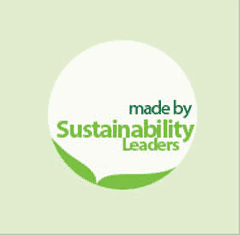Last week, retail giant Walmart announced it has launched something it calls its Sustainability Leaders Shop, an online shopping portal that helps customers identify and purchase products that are produced in what it defines as an environmentally and socially responsible way.
The effort is the customer-facing side of Walmart's supplier Sustainability Index, a program it launched in 2009 to grade suppliers on environmental and other sustainability factors.
Both programs were developed in conjunction with an organization called The Sustainability Consortium (TSC). TSC is jointly run by the University of Arkansas and Arizona State University, and has evolved into a collaboration of more than 100 of the world's largest retailers, consumer product companies, and NGO and academic partners. More on that in a second.
With this new initiative, Walmart says it will now be designating some 10,000 "best in class" products across 80 categories as Sustainability Leaders. That means that shoppers looking for anything from soap to printer ink will see which products are the most responsible by looking for the Sustainable Leaders badge (see image nearby).
Part of what TSC has been doing over the past few years is determining what makes certain products more sustainable than others. It reviews considerable research on different product categories for environmental, social and other issues related to sustainability. Water usage may be a big issue for one product category, for example, while use of conflict minerals may be a top issue in certain electronics categories.
TSC has managed to develop sustainability profiles for over 100 product categories. In turn, it translates that to about 10 to 15 questions that manufacturers and consumer products companies can answer, which generates a score for each product and company in a given category.
Using this information, Walmart is awarding the badge to companies in each category that either rank highest or score above 80 (out of 100).
The answers from the suppliers are self-reported, and not independently verified. However, the highest-ranking sustainability officer at the company has to sign off on the answers. And one can assume that being caught fabricating responses would not enhance a manufacturer's position with Walmart - often the largest customer (sometimes by quite a bit) for many consumer goods companies.
So, those companies and products receiving the designation will have the Sustainable Leaders badge connected to their products on Walmart.com.
Will Consumers Care?
Perhaps the most interesting aspect of the Walmart program is that it will ultimately (and perhaps rather quickly) provide quite a bit of data about how much consumers actually value sustainability.
 The reality is that while most surveys show consumers say the prefer green/sustainable products, the data on whether that actually shows up in buying activity is unclear at best. The Walmart program should provide some real and better insight into this issue. The reality is that while most surveys show consumers say the prefer green/sustainable products, the data on whether that actually shows up in buying activity is unclear at best. The Walmart program should provide some real and better insight into this issue.
Will products with the sustainable badges sell more? Will consumers pay more for a sustainable product? If several products in a category all have the badge, does it then become really become a non-issue?
According to Andrew Winstorn on a Harvard Business Review blog, Walmart plans to share its findings, at least with its big suppliers, and perhaps with all interested parties.
The program is on-line only for now, but certainly could find its way in-store before long as well.
The GreenSupplyChain.com sees perhaps a bit of complexity perhaps coming Walmart's way, however. Walmart says it is already using its Sustainability Index to select suppliers. That at some point if not now would seem to imply that all Walmart suppliers are meeting certain sustainability standards. So now this new program apparently will try to cull out from those suppliers that make the first cut those that further distinguish themselves. But it seem inevitable that before long all suppliers in a category will receive the Sustainability Leader designation, ironically making it in effect meaningless.
Unilever's VP of Sustainable Living, Jonathan Atwood, said that "the launch of the Walmart Sustainability Leaders Store is a significant moment for the industry and shoppers. It's a major signal that embedding sustainability into your business can drive growth and help people make more sustainable choices without making trade-offs between quality, accessibility, and affordability."
Is that true - there are no trade-offs? It implies that sustainability is free. Is that true? We'll see.
"After years of guessing, and surveys that show positive eco-intent, we'll see if we are really willing to put our collective money where our mouths are," Winstorn writes on the HRB blog.
Whar do you think of Walmart's Sustainability Leaders program? How do you think it will play out? Let us know your thoughts at the Feedback button below.

TheGreenSupplyChain.com is now Twittering! Follow us at www.twitter.com/greenscm
|